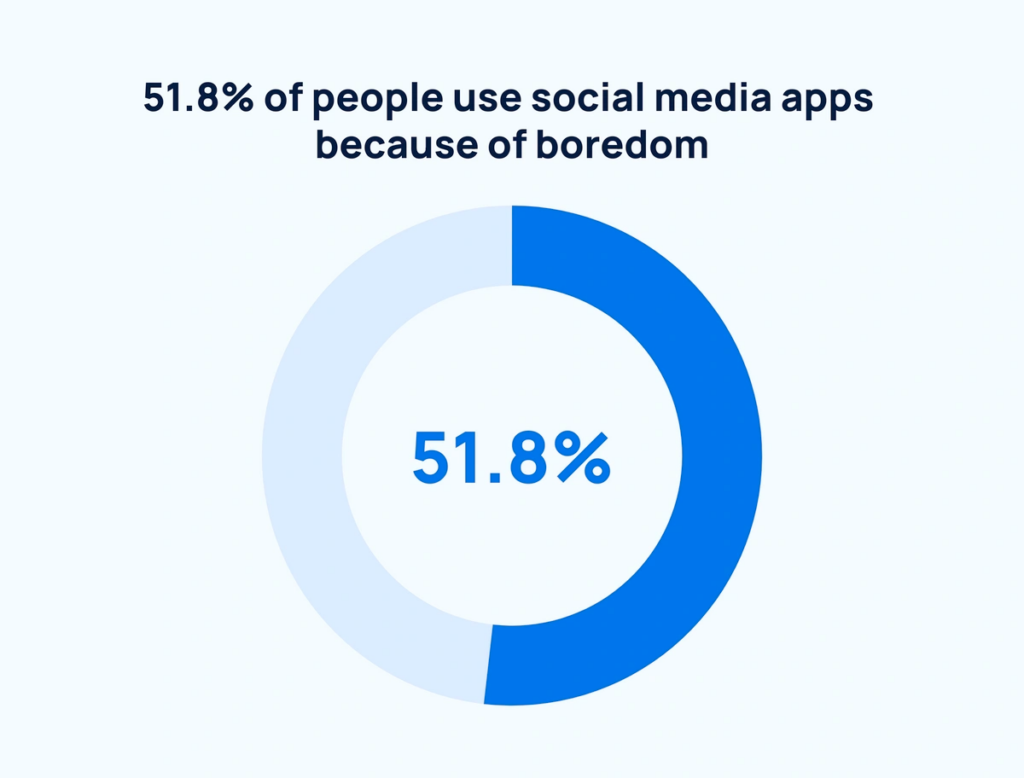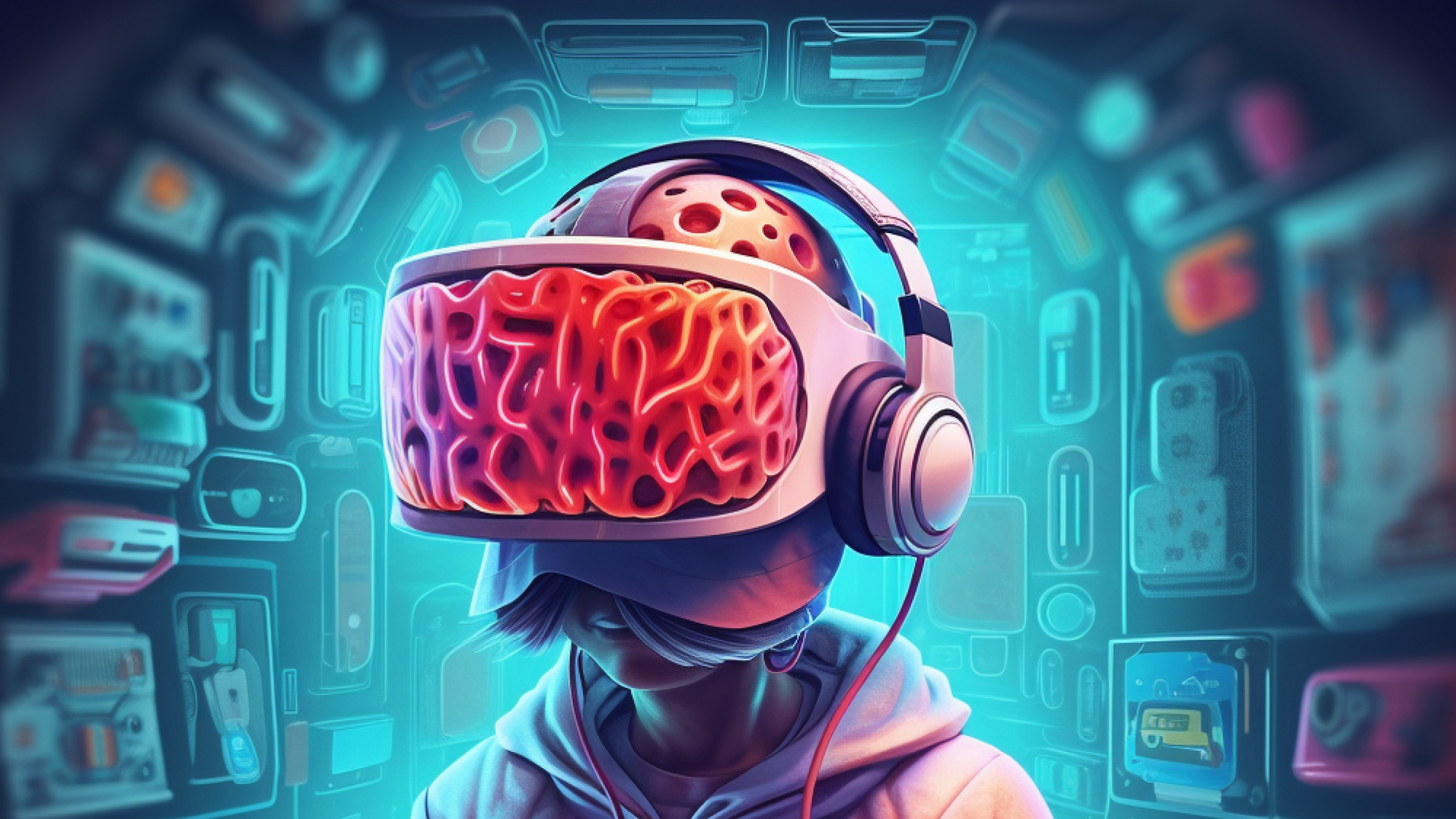
In today’s world, smartphones are an integral part of our daily lives, revolutionizing how we communicate, access information, and stay connected.
In recent years, however, smartphone usage has increased exponentially, so researchers have begun looking into how smartphone use is affecting our overall attention and memory.

The average person checks their phone 58 times each day and spends 3 hours or so per day on it. One in five smartphone users spends, however, spends upwards of 4.5 hours on average on their phones every day.
And what’s interesting is that a lot of this smartphone usage isn’t for any productive reason either. In fact, according to research, the main reason people use social media apps is boredom.

This article explores how smartphone use can affect memory and attention.
Digital distraction and memory
One obvious way that smartphone is affecting memory is through digital distraction.
We’re constantly distracted by notifications, alerts, social media, and an endless choice of content these days. While convenient, this is definitely preventing us from being able to concentrate and focus.
In fact, with all these distractive apps and messages to check, our attention span has been recorded to be the equivalent to that of a goldfish. And as a generation programmed to multi-task through different applications, we are essentially training ourselves to decrease our cognitive performance and impair memory function — something that multi-tasking does.
As our attention is divided between multiple tasks, our brains struggle to switch between them, resulting in decreased efficiency and accuracy. This can result in reduced ability to encode new information into memory effectively, leading to decreased memory performance over time.
Cognitive load and memory performance
Smartphones are also affecting our memory. Using smartphones constantly requires our brains to process many tasks and information simultaneously. Our brains, while advanced as they may be, are still primitive in nature and were not built to deal with such endless stream of information, 24/7.
As such, this is resulting in increased cognitive load.
Our working memory, which holds and manipulates information in the short term, can become overloaded, resulting in impaired memory function and reduced cognitive performance.
Think of it as a battery. We only have so much energy our brains can run on. And with each form of information that comes our way — whether big or small — we are depleting that battery faster throughout the day by letting unnecessary things take up space.
Reduced sleep quality on memory
Using a smartphone before bedtime, particularly before sleep — something a majority of people are doing these days — can also impact memory.
Blue light from screens interfere with the production of melatonin, a hormone that regulates sleep. This results in poorer sleep, and the lower the quality of sleep we have, the worse it is for memory consolidation in general.
A lack of sleep quality can disrupt this process, resulting in memory deficits.
The Google Effect on memory
Moreover, with the smartphone allowing instant access to information, at the tip of our fingertips, we are prone to the phenomenon known as “digital amnesia,” also known as the Google Effect.
Smartphones make it easy to store and retrieve information, like contact numbers, directions, and reminders, so we inevitably rely less on our brain to encode or retain that information in our internal memory.
This reliance on an external device to consolidate information for us, can lead to reduced memory performance in the long-term.
Reducing smartphone usage
Despite smartphones becoming an integral part of our lives, it is important to practice healthy smartphone habits to mitigate their potential impact on memory and attention.
- Set boundaries — With any addictive behavior, it’s important to establish specific time limits of usage. This is the same with smartphones, particularly during tasks that require concentration or memory encoding. Avoid the temptation to constantly check notifications or engage in excessive multitasking.
- Minimize distractions — Turn off unnecessary notifications or alerts to minimize distractions or temptations that will interrupt focus and attention. Design your environment in a way that will prevent any potential distraction from getting in the way.
- Practice mindfulness — Being aware of your smartphone usage is important, but practicing mindful meditation is also an added benefit for your brain. Whether its deep breathing or simply staying off the screen for long periods of time — all of these can help enter the right headspace, and improve focus and concentration.
- Prioritize sleep — Sleep is crucial for your brain. Prioritize good quality sleep by establishing a set bedtime routine, and keep your phone out of reach from your bed. Avoid using smartphones at least one hour before bedtime to allow your brain to wind down.
- Limit multitasking — Avoid excessive multitasking while using smartphones, as countless studies show that this is not good for you, despite us feeling like we’re being productive. Focus on one task at a time to help improve concentration and memory.
- Take breaks, replace habits — Give yourself regular breaks from smartphone use to allow your brain to rest and recharge. Replace that time you’d check your phone with other activities, whether it be exercise, reading, learning a new skill, etc.
Final thoughts
Considering how much time we spend on our phones, it’s important to recognize how they affect our attention and memory.
Digital distractions, cognitive load, inadequate sleep, and relying too much on external memory can all affect our attention, and memory, and thereby deter daily performance and productivity.
None of what is being said is to say that we should ditch our smartphones entirely. The fact remains that they are a integral part of our daily lives in the modern day.
Instead, all we advocate is to learn to take advantage of smartphones’ benefits while staying mindful of their potential impact on our cognitive function as well. As long as we remain aware and active in the tips mentioned above, maintaining a healthy distant relationship with our smartphones, we can thrive without sacrificing the precious memory and attention that will matter much later in life.










